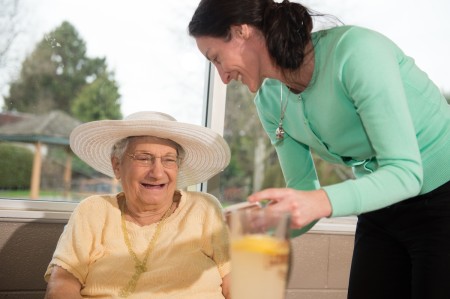Daylight Saving Time is this weekend, wand the switch often comes with negative side affects for the population including headaches, lost productivity, and a spike in traffic accidents. What many don’t realize is the profound effect that the time change has on Alzheimer’s and dementia sufferers, for whom a regular schedule is critical to quality of life. Coreena Robertson, Communications and Wellness Director at Fraserview Care Lodge and creator of Boomerang LIFE products, gave an interview with Richmond Review (see here) on how the time change affects seniors with Alzheimer's or dementia. The time change causes confusion and can increase behaviours known as “sundowning,” which includes acting out, general aggression, a tendency to wander away, and increased feelings of depression and anxiety.
You can also listen to Coreena this Sunday (March 8th) on CKNW. Below are Coreena's tips for helping a loved one with Alzheimer's or dementia adjust to Daylight Saving Time:
- Make the transition gradual. The sudden loss of a full hour is difficult to cope with. To address this, on the first day of Daylight Saving Time, allow your loved one to sleep for 45 minutes past their usual wake up time. On subsequent days, gradually move wake up time ahead by 15-minute intervals until the desired wake-up time is reached.
- Engage with your loved one. Take extra time to engage your loved one in the days following the time change. This is especially important around meal times, when what their body is telling them may not match what the clock says. Turn on their favourite TV show or play a game to help focus their attention.
- Relax into sleep. As the name suggests, “sundowning” happens in the early evening. To keep sundowning behaviour at bay, choose an activity to engage them with, but make it something calming such as listening to soft music and or sipping a warm beverage together. This will also help your loved one prepare for going to bed an hour earlier than usual.
- Be present. Meet your loved one in the moment they are experiencing, everyday. Join them in their journey by validating what they are saying. Don’t try to correct their ‘stories’.


